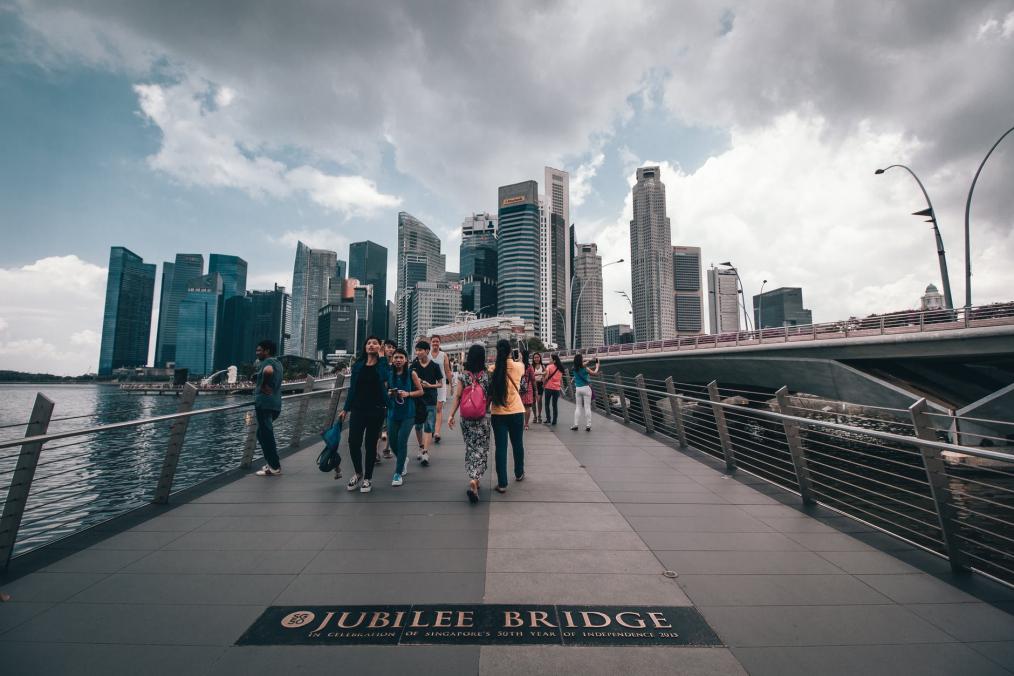
Technical recession risk heightens in Q3 amidst slowing economic growth
Year-end GDP forecast is lowered to 0.5%.
Singapore’s economic growth is expected to further slow in the H2 amidst softening private consumption and further contracting of exports, highlighting the growing possibility of a technical recession in 2019-2020, RHB stated in its latest economic report.
Also read: Singapore could come off worse than regional neighbours in next global downturn
RHB has lowered Singapore’s GDP growth forecast to 0.5% for the whole 2019 from 0.8% previously, and also moderated 2020’s numbers to 0.8% from 2% projection a few months earlier.
A technical recession, defined as two straight quarters of negative growth, is likely for end-2019 or 2020, said RHB, although they ruled it out of their baseline forecast. A deteriorating oversupply condition has driven the electronics output to contract 9.3% YoY in Q2, worse than the 3.3% decline in the previous quarter. Major markets such as the automotive, mobile phones, and cloud infrastructure sectors are struggling to clear their inventories, said RHB.
Also read: Singapore's industrial production fell 8% in August
In an earlier report, UOB Kay Hian believes that this month’s numbers indicate a higher risk for technical recession.
“The risk of a technical recession in the third quarter of 2019 has magnified given the latest industrial production print. Given the August manufacturing data, industrial production growth in the first two months of Q3 has averaged -4.0% YoY, and a potential contraction in September around -4.5% YoY or more should trigger a technical recession scenario,” said UOB Kay Hian.
In contrast, HSBC Global Research expects Singapore to “narrowly escape” technical recession this year thanks to the expected expansion of the services sector in the third quarter.
“We believe growth in the services sector will bounce back in Q3, which should allow the Singapore economy to narrowly escape technical recession this year. However, given the ongoing weakness in externally-driven sectors, MAS is likely to ease monetary policy in the October meeting,” HSBC said in a note.
On the other hand, RHB noted that domestic demand has so far remained resilient and will provide some cushion against regional economic headwinds.
“Domestic demand has so far remained resilient, supported by private and government consumption. However, we expect a softening in 2H19, as the impact from the external environment begins to affect the domestic economy. This may be extended into 2020,” the report read.
RHB also expects a softening in growth of private consumption in H2 to 2.2% from 4.4% in H1, in tandem with the moderation in employment growth, consumer confidence and business sentiment.
Also read: Retail sales rebounded 2.6% in July after two-month decline
Employment conditions are projected to become more challenging by end-2019, particularly for the manufacturing and services sectors. A net negative employment addition is recorded in manufacturing in Q2, whilst employment addition in the services sector sharply moderated, said RHB.
“Although structural effects are in play as the sector becomes more reliant on automation, the cyclical effects from global slowdown also played a role [in the manufacturing sector]. For the services sector, employment addition sharply moderated, due primarily to seasonal factors in the subsectors of accommodation & food service, as well as wholesale & retail,” the report noted.
Also read: Firms cut back on hiring plans in Q4: survey
Softer employment addition was also observed in the IT and communications, as well as the transport and storage sectors. In contrast, the construction sector showed steady employment recovery, with a slight positive net addition for Q2.
The gross fixed capital formation (GFCF) will remain flattish in 2019 and modestly positive in 2020.
“For H2, GFCF is expected to grow by 0.7% (from -0.2% in H1), due to the effects of a low base last year as well as recovery seen in the construction and civil works segment. For 2020, we anticipate GFCF to gain further momentum and record a growth of 1.5%,” said RHB.
On the other hand, public investment showed positive growth in H1 amidst higher budget allocation for investment spending. RHB expects the trend to continue in H2 and into 2020. The continued recovery of the residential property sector could provide support to investment as the number of buildings planned and commenced increases, they added.
























 Advertise
Advertise










